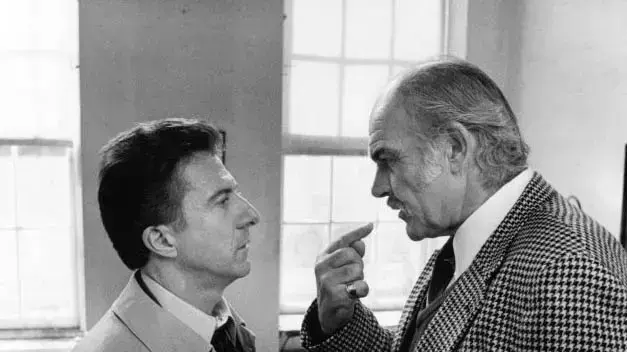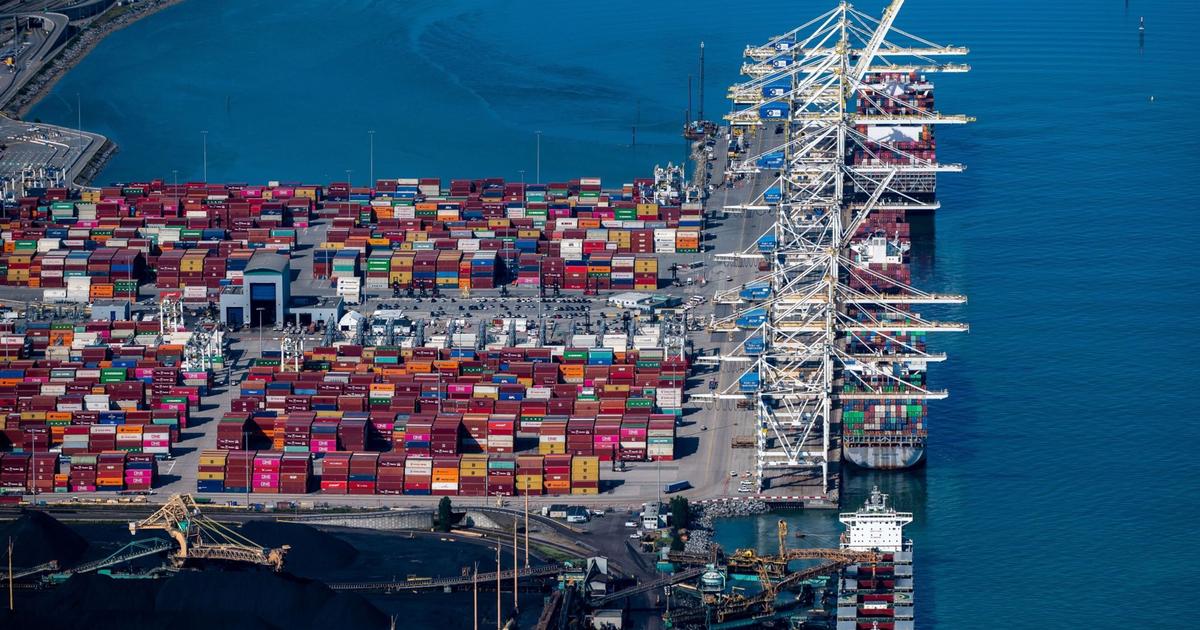It was perhaps the hardest day of Bob Sternfels' professional life.
On April 27, 2022, the CEO of one of the largest consulting firms on the planet, McKinsey (38,000 employees in 65 countries), appeared before the US Congress after discovering that the company had helped opium producers multiply their profits. sales in the midst of the deadly crisis of this epidemic.
The company did not admit any wrongdoing, but agreed with the 50 states that had sued it for $600 million in compensation.
Later, 1,100 employees accused the company of doing too little to reduce its customers' carbon emissions.
Sternfels – a veteran, has been in the house for 29 years – perhaps thought of that topic of the best place at the worst moment.
Today he must manage one of the biggest staff cuts in the almost hundred years - he meets them in 2026 - of the organization.
But he also wants to guide her through this century.
A time of "war for talent", geopolitical uncertainty and where workers "have an obligation" to disagree.
Ask.
It plans to lay off 2,000 workers.
It is one of the largest collective layoffs in memory at McKinsey.
Answer.
We have not yet decided the exact number.
Neither how will it affect Spain.
But we are going to continue hiring talent.
It had been a decade since we had analyzed our business format in depth.
These are turbulent times and it is my responsibility to have a model that allows us to do what we have to do.
We have created global platforms and from there we can scale our operations in different ways.
I have a huge personal commitment to treat people as fairly as possible.
Q.
They plan a very high dismissal and at the same time talk about a "war for talent".
Isn't that contradictory?
R.
We will continue incorporating professionals into the company to serve our clients.
Spot.
But it's hard.
The labor force is shrinking in Europe.
The idea of being more creative with talent is basic.
We are looking for extraordinary people.
We receive more than a million applications a year and offer about 10,000 positions.
Until recently they came from only about 500 sources.
We want a special profile for the company.
Today, only 20% of the workers we hire come from business schools.
80% have other training.
The new vision of the "war for talent" responds to the challenge of identifying what are the criteria to distinguish it and selecting that knowledge over classical skills.
This is the profile of McKinsey's future leaders.
We just chose a partner who has never been to college.
A partner of the firm without a university education;
imagine it!
If you are good enough, you have a chance in this company.
Q.
All companies make mistakes.
But what did she feel when a Democratic congresswoman compared the consultant to a drug dealer?
R.
There are two capacities in which we have to improve.
Be more humble and have greater courage.
How can you be both at the same time?
Humility is recognizing that we make mistakes as we evolve.
It is impossible to be perfect.
But honestly when we make a mistake – like in South Africa [the firm was embroiled in a corruption scandal, which cost his predecessor Kevin Sneader his job] – I'm the first to admit: we were wrong.
You make changes so it never happens again and move on.
This is humility not arrogance.
At the same time we have to maintain that courage, because we know that they will question us.
An example.
We have been criticized for working with companies that generate carbon.
I answer them.
We are committed to helping solve climate change and for that you have to be alongside the sectors that find it more difficult to complete the energy transition.
We have also felt the rejection for supporting the public sphere.
However, what we do is contribute to improve it.
They have even criticized us for being a global firm in times of deglobalization.
We are proud to work on issues that do not understand borders.
Q.
Last year in front of your more than 2,700 members, you said: "There are many opportunities in the world, so if this doesn't appeal to you, you don't have to be with us or come with us."
Hard and sincere.
What does it mean?
A.
It means exactly what I say.
Great talent has enormous possibilities.
There are many problems to solve on the planet.
When someone comes to McKinsey I want them to understand the mission that they have been entrusted with.
We have great challenges, such as the inclusive growth of societies.
We are helping the development of Spain.
To inclusion, to climate change.
If you commit to these two ideas you can be part of the company.
We don't want to hold people back but to inspire them.
Q.
You are on the board of the US China Business Council.
We are living through a trade war between the two countries.
What is your prediction?
R.
I am not a fortune teller.
But I am very worried.
We have commissioned the Global Institute [the firm's research arm] to look at globalization.
And there are fascinating results.
The last 30 years have been very good for the world.
Life expectancy increased by seven years, most GDP growth comes from low-income countries, and secondary education has doubled.
Between 10% and 20% of the world's wealth depends on trade flows.
And no region (China, Europe, the United States) is an island.
I think 20% is a huge cost.
This would be the version of deglobalization.
There is another.
diversification.
It means having more roots, more routes, more ways.
India, Vietnam, Indonesia and, close to Europe, is Egypt, a large supplier of manufactures.
We are moving towards diversification, not towards decoupling.
Q.
The Earth needs to spend 9.2 trillion dollars a year until 2050 to fight climate change.
In his own words: "The largest reallocation of capital in history."
A.
I am optimistic.
The energy crisis and climate change can be solved at the same time because amazing technology exists.
And economic opportunities in the transition.
Green businesses can generate $11 trillion in new revenue by 2030. This takes money.
The part that worries me the most is how we create internal mechanisms for capital flows to support this transition.
Q.
“ McKinsey's
laissez-faire
management style,” write Walt Bogdanich and Michael Forsyth, journalists for
The New York Times
, in their 2022 book
When McKinsey Comes To Town
, “has allowed its consultants to make huge profits promoting addictive products, recommending policies that increase income inequality, and serving bad actors on the international stage, including major polluters.”
What do you think?
R.
It responds to the idea that I mentioned at the beginning.
The accusation of promoting inequality and supporting polluting companies.
One of our obsessions is inclusion and the data supports us.
The [more than 3,000] clients we work for have created a million new jobs in the past year, reskilled
another
million people, and this is inclusion, not inequality.
We work with some firms that pollute.
The reason is that we are convinced that we can help them complete the transformation and solve climate change.
Follow all the information on
Economy
and
Business
on
and
, or in our
weekly newsletter

/cloudfront-eu-central-1.images.arcpublishing.com/prisa/MIY3EHWNN5C2JJPDVNQ6SJ5AXQ.jpg)













